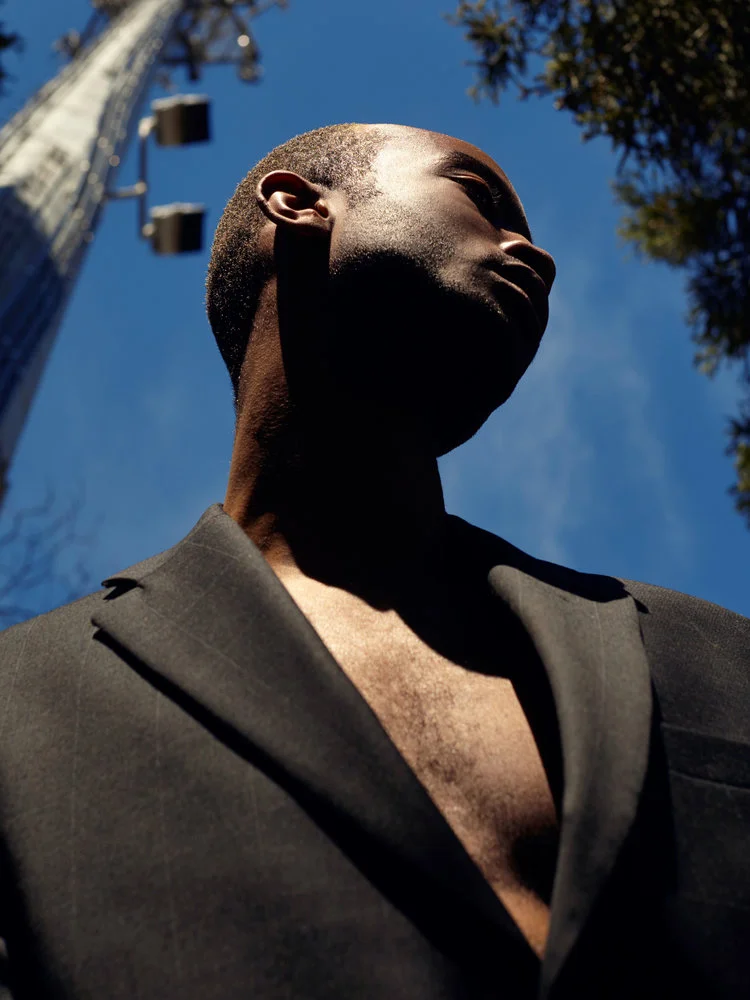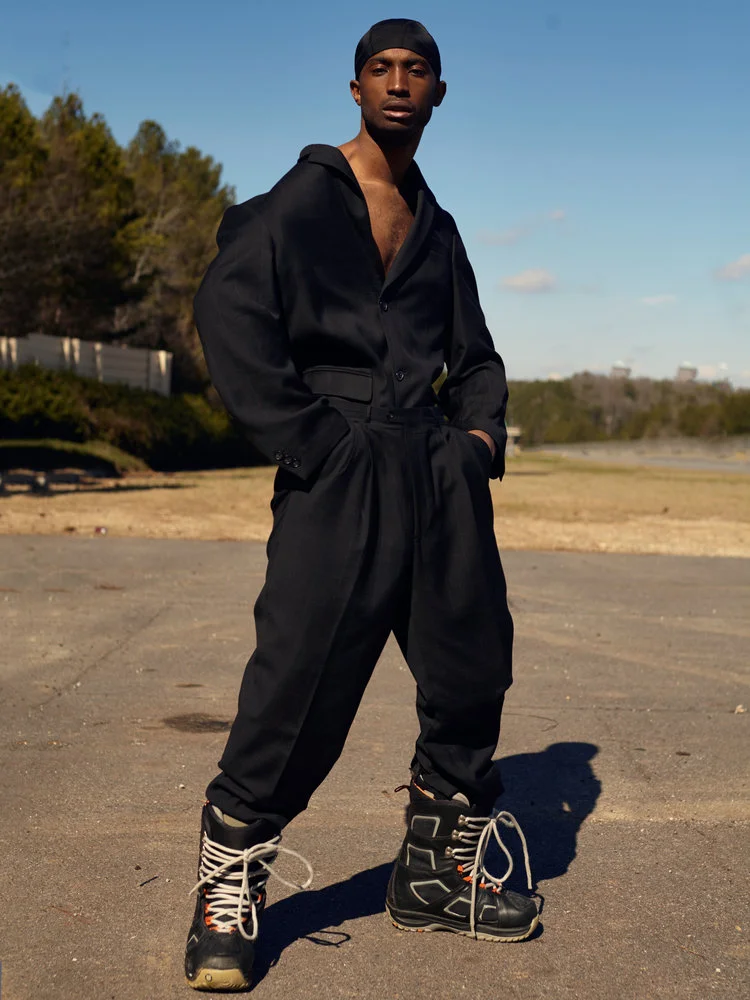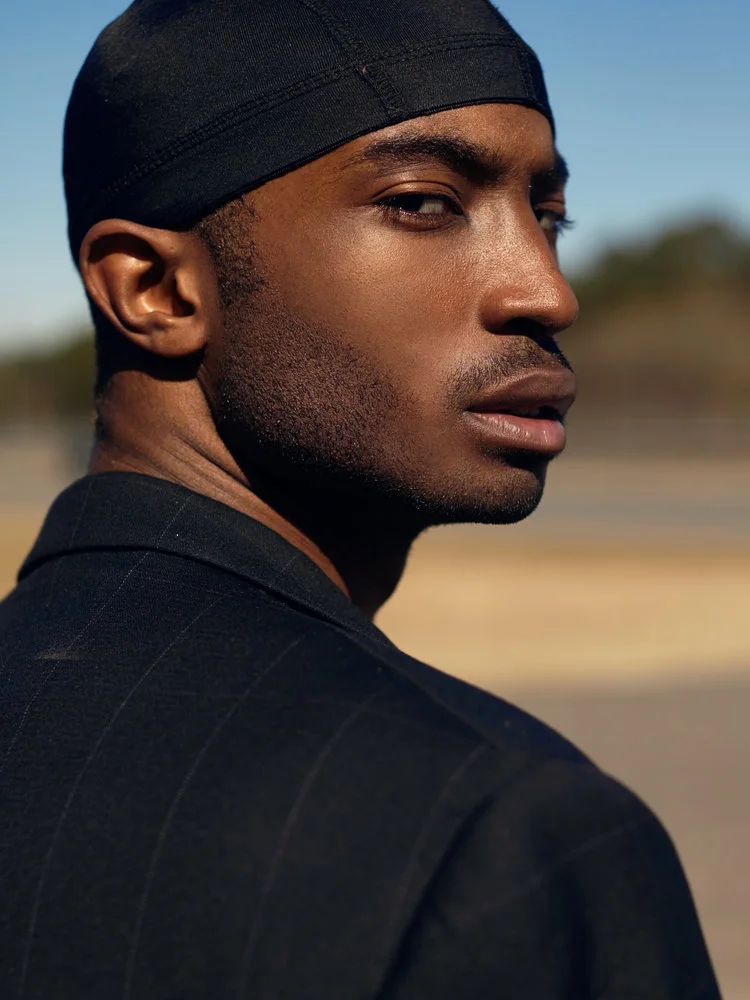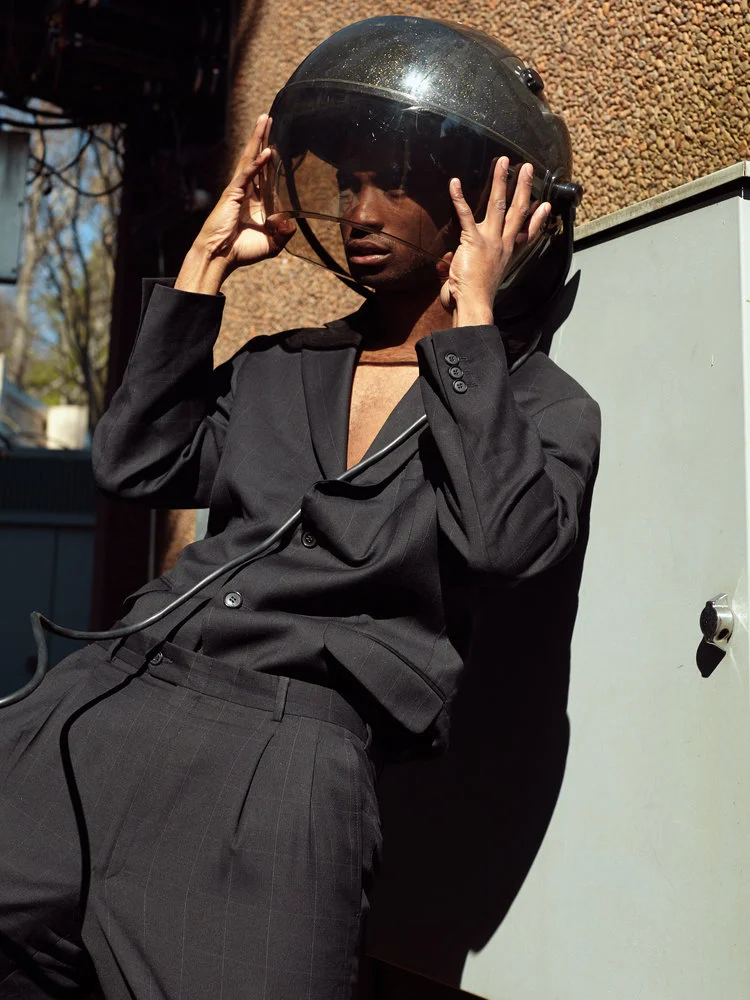HOMMEBOY
for LOVE YOU TO DEATH MAGAZINE
How would you describe your artistry in terms of your music and visual assets?
I would describe my artistry as formless and boundless. I believe in taking on many forms and having many evolutions - and by doing so, that keeps me from the silly labels that the world tries to immediately put on us. My style and my sound are constantly evolving.
As far as creation goes, I create with a child-like spirit so visually there seems to be a light-heartedness to what I produce. It stems from love and wanting all types of people to be able to enjoy my sounds - from my nieces in Marietta to the queer kids in Dubai.
House is usually associated with voguing and balls, but I really want to add to the depth of that culture that already exists with powerful and positive messages.
A big thread of my music is "no labels on people, no labels on clothes". That love is important for me to translate through my music and visually. That idea is not some distant utopian society. It's the world that I live in and try to cultivate today - and I try to do that with my words and visuals.
How did you become Hommeboy? Where did the name come from?
I started going by Hommeboy because I found myself creating and hanging out with all types of different people and scenes in Atlanta. I never really felt like I fit in with one group, and I never took notice of being defined by a scene.
Again, that goes back to that idea of remaining formless and boundless. I'm not defined by one scene or group. Hanging with the punk kids don't make me no punk. I'm a man OF the people and FOR all people. It's all love.
Being globally conscious and internationally aware, I wanted to the replace the home with the French Homme. That gave it more international appeal and made it sound a little more expensive.
So really, Hommeboy means I'm a friend of the world, a companion of creatives everywhere.
I'm your friend. I'm your nigga. I'm your next door neighbor and I'm coming to borrow some sugar. I'm your Hommeboy.
Your FUNKWITME EP contains a lot of deep house elements. Is this genre something that you have always had a connection with? And how important was it that this was the main sound listeners would be hearing from you?
The FUNKWITME EP is a dose of funk, a splash of wit, and a whole lot of me. It's an upbeat project, but it's laced with introspection and positive messages.
It was very important that people heard this sound from me first before anything else. I've recorded a lot more music since I recorded this EP, but FUNKWITME is a record that punches people in the face with love. It's a multi-dimensional and reinvigorating soundtrack that I felt like would show my voice clearly and would relate with all types of people.
On House Music:
I started listening to house music in late middle school. I would just get lost in underground house subsections of YouTube.
I've been listening and creating to house music for as long as I can remember. There's an energy and a power with house music that just makes you feel good. It's a genre that's embedded with positive vibrations and messages.
I haven't always rapped over house music, but being a product of the internet, I always resonated with unique sounds and was open to eclectic genres.
I started writing music and rapping when I was 8 years old - and by time I was a teenager, I was rapping over really experimental tracks by bands like "Octopus Project" and Daft Punk - just really resonating with the challenge of trying new deliveries, cadences, and flows. Plus, the energy in a lot of these electronic and house records are unparalleled.
But yeah - I fucking love house. The last track on my EP, Paradise Garage, is an ode to a house club that was popular in NYC in the 80's and 90's called "Paradise Garage". It was a private house club made from a parking garage and it would see icons like Keith Haring, Grace Jones, and more at their prime just dancing so freely together.
It seemed like a place where labels didn't matter. And you could just dance freely amongst other free people without thinking about what the person was thinking about next to you.
That's the kind of culture and freedom I want to create around my music: Positivity, love, free dancing, loving yourself, loving your neighbor, no inhibitions, all of that.
As an artist, what is your creative process like? When making the EP did it differ in anyway from your usual process?
The FUNKWITME EP was recorded in a barnhouse in Atlanta when I was 19/ 20 years old. I'm 23 now. The recording process was intimate and pure. It was just myself, the music, my voice, and the audio engineer, Mike Rosenfeld.
My creative process is extremely intuitive. I feel that when writing, I am a vessel just communicating my personal truth the the universe wants the world to hear.
I pull my inspirations from sounds and moments in the real world - every piece of data that I consume throughout the day.
I am inspired by every conversation, soundbyte, horn honk, microwave beep, accent, train screech, car passing - everything.
What can we expect from Hommeboy in the future?
We can expect the future. I want to invite people into the future that I've always dreamed of. Carefree, label-less, dancing amongst strangers, hugging the people next to you, loving yourself and all of your funk. That's what FUNKWITME is truly about.
Also, I'm learning french. So maybe expect some more HOMME than boy in the the near future.
Listen to HOMMEBOY's latest EP, FUNKWITME here.
Click here to read more on Love You To Death Magazine





